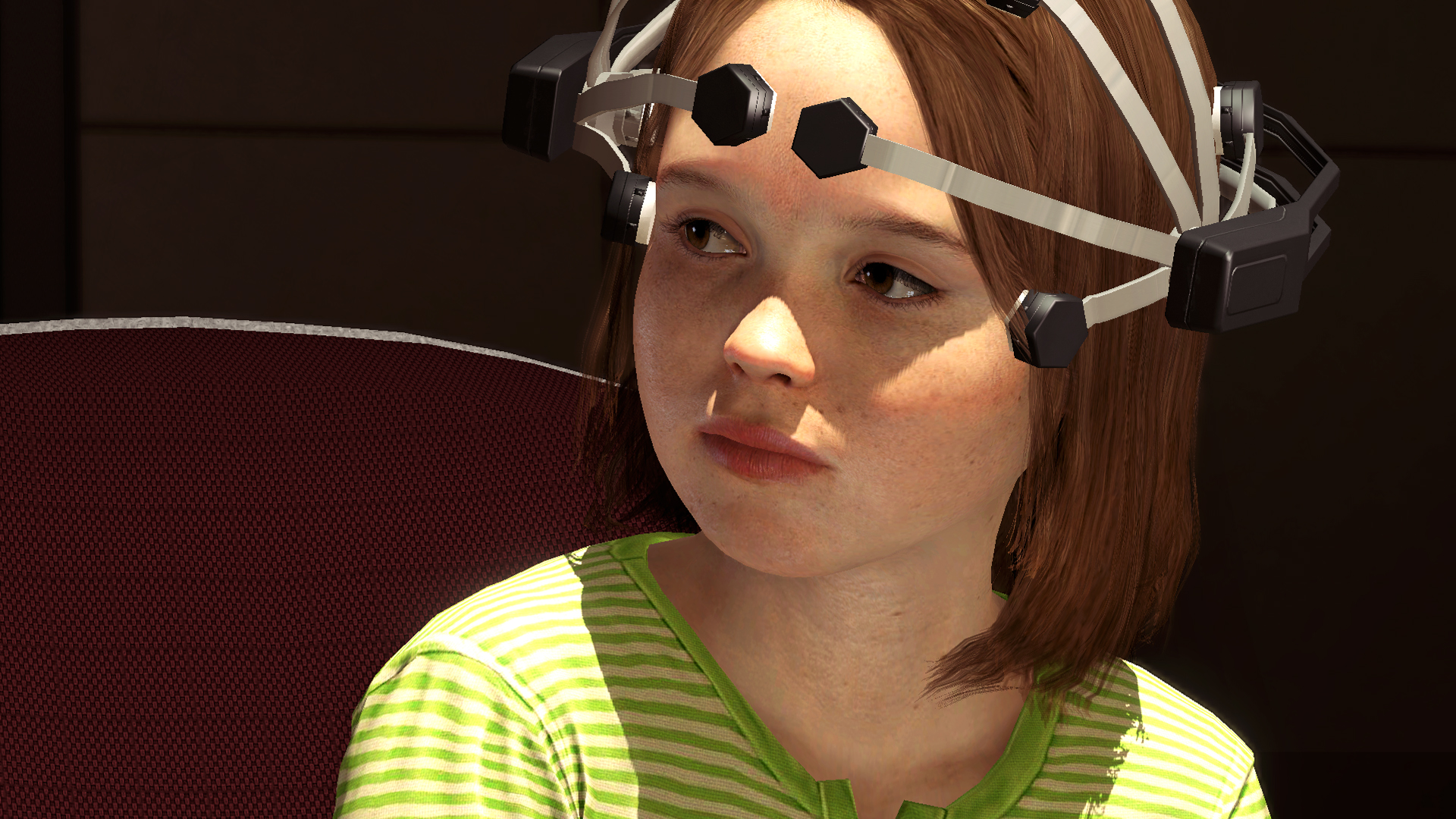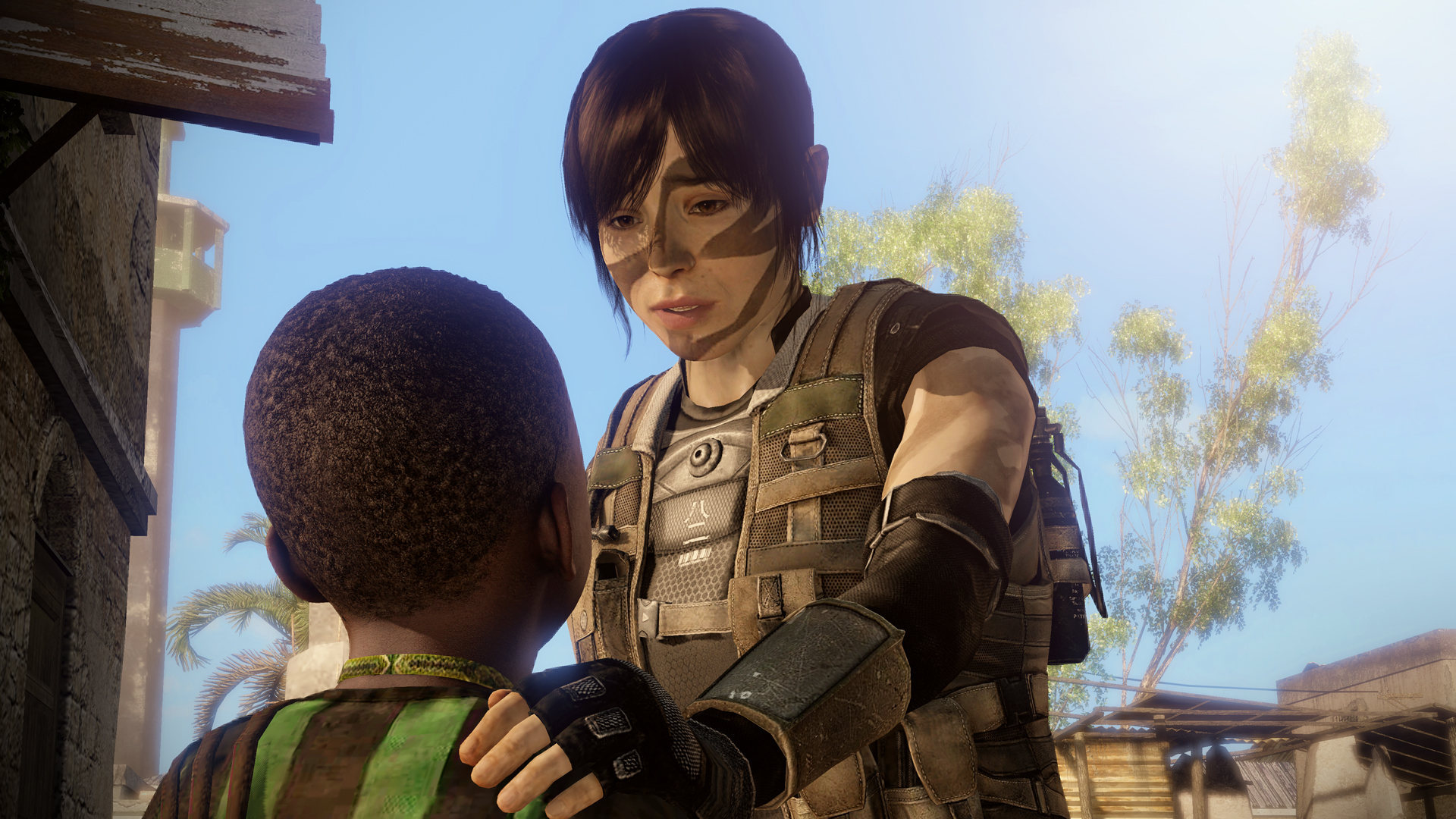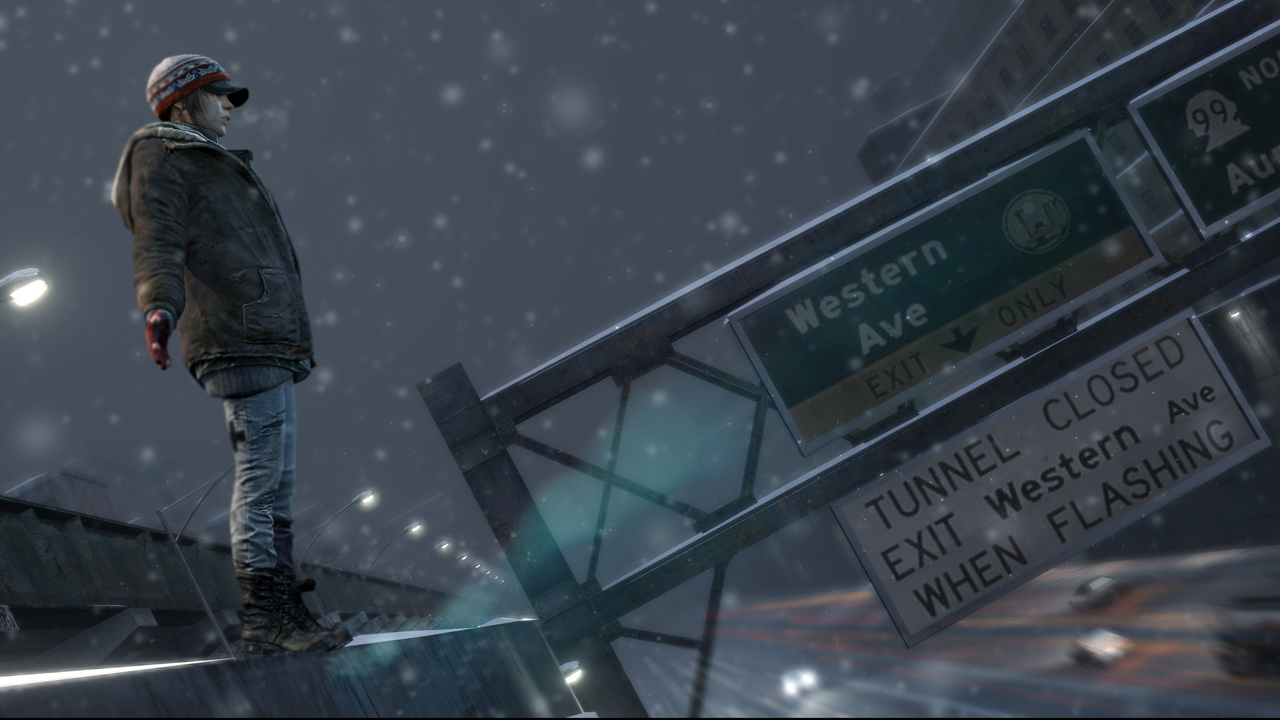Video Game Logic and Beyond Two Souls

Poor little Jodie is tortured because of Aiden.
A QUICK OVERVIEW
Beyond Two Souls is a touching narrative driven experience with powerful moments that made me cry and made me laugh. As much as I enjoyed it for the plot, I do hesitate to call it a game for one simple reason; it has no rules. It is definitely an interactive piece of media, and I do think that interactivity adds necessary weight to the story, but nothing about it has coherent systems. The combat system and puzzle solving gameplay really suffered for this, and led to many moments of aggravated when I was supposed to be feeling fearful or sad, and constantly took me out of the immersion of Beyond Two Souls.
THE USELESS GHOST
When I first played Beyond Two Souls, I played it on multiplayer mode with a friend, knowing nothing about the game before going in. The game told us each to pick one of the main controllable characters; Jodie, or Aiden. Jodie is a very plain looking young girl, and Aiden is her telepathic ghost friend. The choice was instantly obvious to me; I wanted to be an awesome ghost who could terrorize people and blow things up. However, within a few chapters it became very clear to me that the story is not about Aiden, it's about Jodie internal struggle with dealing with having Aiden around. Most of the time, I served only to annoy Jodie, and even if I wanted to be a friendly ghost, the plot required me to do some destruction action to continue with the game. This philosophy is especially true during the childhood and teenager chapters, where Jodie constantly hates, or is fearful of Aiden, and he serves no beneficial purpose.
Later on, Jodie does combat missions for the FBI, and Aiden is supposed to be there to help. Occasionally, you can choke an enemy to death, or take control of them to have them shoot their friends, but it was not always an option. It was during these sections that the problem with the game really began to show. What action Aiden could perform on an enemy is completely arbitrary. There is no consistency, no way to know if you can even touch them. Early in the game, we are taught to "press left trigger to switch between Jodie and Aiden" but this function is, with very few exceptions, completely useless. The game will automatically switch whenever you're supposed to use Aiden, and if you try to decide to use him and switch without the game telling you, there's nothing you can do. There will be no prompts to kill enemies or move objects to puzzle solve. The most the switch button is useful for is surveying your surroundings with Aiden, which after 100 hours, I believe was only necessary once.

You're supposed to feel sad for this child.
PLAYER CHOICE
One of the weakest parts of the game for me was a mission to fight terrorism in the middle east. In the end, Jodie unknowingly murders the father of a child you'd befriended. It's supposed to be an impactful, emotion filled moment for the player, but the sequence of actually killing the father feels extremely anti-climactic. You have no choice in which way you go about killing him, or even about whether to use Aiden or Jodie for the final blow. If the mission had been created in a way where the player has some agency, but still eventually got to the final objective, then it would have felt much more like my own actions and less like the game forcing me into doing everything a specific way. In order to get the player invested into a moment, they have to feel like they themselves are the ones who performed the action. That doesn't include a "press X to shoot him" quick time event, that means allowing choices, such as using Aiden to choke him, or mind-controlling another guard into killing him.
The most common criticism of Beyond Two Souls that I hear is that it is essentially a movie. Choice is definitive to video games, along with having consistent systems and rules, both of which are not present in the game. If the player cannot choose what to do in any given situation, then the player is separated from the experience, and Jodie feels much more like a movie protagonist than anyone the player can relate themselves to. The moments where Beyond Two Souls does shine is when there is choice, such as in the Homeless chapter, where you can choose to rob a store, engage in fights, or save certain characters from a burning building. Despite that Aiden still was not useful in any meaningful way, the choice that Jodie had made it the most emotionally impactful chapter for me.

The Homeless chapter was one of the best in the game.
IN CONCLUSION
Inconsistency and a lack of player agency for how to go about missions made me constantly annoyed at Beyond Two Souls. Despite a touching story, it holds no weight and any sense of immersion is fleeting because the player cannot connect to the protagonists without the ability to control their actions. Video games can excel at narrative experiences precisely because they are an interactive medium, but developers need to recognize that interactivity means choice.
Until next time, Tabea.